
Candida Martinelli's Italophile Site

Main
Page This family-friendly site celebrates Italian culture for the enjoyment of children and
adults. Site-Overview
A broad-stroke view of European identity, provided
by writer Richard
Hill from his book 'We Europeans'.
(Mr. Hill's books are available as e-books from
www.europublications.com .) The following images are from The European
Communications Group (and reproduced in Mr. Hill's book) and represent Eight Different Ways of Advertising a
Hammer, each suited to a different European country and the characters
of their citizens. In royal obsessed Britain, the appeal is the royal
seal of approval and stating that it is "Her Gracious Majesty's
Hammer" of choice. In celebrity and fashion conscious France, "Le
Hammer exquisite" is "Created exclusively for Catherine
Deneuve by Maxim's of Paris". In precise Germany, the hammer is "Designed by
German Hammer Scientists" and "Approved by Deutsches Hammer
Institut". In love obsessed Italy, the hammer is assured
"Irresistible to women" and dubbed the "Amore
Hammer". In linguistically divided Belgium, "the
linguistically correct hammers are exactly the same but totally
different", offering "The French Speaker's Hammer" and
"The Flemish Speaker's Hammer". In economical Holland, "The Dutch Economy
Hammer" is a "Half price - Assemble yourself" option. In financially efficient Switzerland, "The
Swiss Army Hammer" is "The most effective investment tool in
Europe". In environmentally conscious Sweden, "The
environmentally safe, socially progressive Swedish hammer" claims
"It doesn't hurt the nails". "Europublic" created this: "A
cynic's view of European organisation charts". British Irish Scandinavian German Dutch French Belgian Luxembourger Italian Swiss Austrian Spanish Portuguese Greek Slav Vatican Italians
Feel Different From Other Europeans Italy
and the New European Union Members Europeans
not as Good as Italians Think Popular
Descriptions of Italians There
appear to be lots of places on the web that compare native Italians to
Americans, but for me the interesting comparison is between Italians and
other Europeans. They
live so close, share so much history, are joined together in economic
and partial political unity, and yet Europeans are anything but
homogenous. Luckily
for me, this is of interest to others, and below I present some of their
views, together with some of my own. Italian
animator Bruno Bozzetto, together with his sound engineer, Roberto
Frattini, created an animated show about the differences between Italians and
the citizens from their fellow European Union member countries.
(In the left column) They
cover an amazing list of subjects: Highway
driving Parking
habits Pedestrian
crossings Road
signs Bus
stops Election
and political parties Politics
and power Bureaucracy Queues
- lining up Coffee
bars Airplane
landings Mobile
phone use Sports Smoking
habits More
than anything, the show demonstrates that Italians do see themselves
as different from the average European, and they can laugh about the
differences. Interestingly,
when a South American saw the show, he commented that you could replace
the Italians with people from his country and the show would be just as
true. Why
are Latin Americans more like Italians than the Spanish who colonized
most of the Americas? It’s
a mystery, but some suggest it has to do with the 'Franco-effect' on Spanish character
since the colonizing days. The
Italian characteristics the show demonstrates so clearly can be
summarized as: A
preference for chaos over order Individuality
to the extreme A
perverse aversion to authority Power
and machismo Public
service inefficiency, and amazement when public services work
properly Highly
vocal natures and at times aggression Armchair
athletes Other
characteristics, not evident in the show, are: A
sense of perfectionism in one’s own field of specialty Adaptability
to changing circumstances The
ability to do well under pressure and ‘finire in bellezza’
(to finish well) A
creative approach to problem solving Enthusiasm
and a love of life The
ability to exercise ‘active inertia’ or ‘passive resistance’
to undermine unfairness A
strong desire for security and attachment to family Self-reliance
and entrepreneurial spirit Most
Italians will laughingly claim to have all these traits, and that many
of them are harmful to the country as a whole.
Italy
is a founding member of the European Union, and the public is strongly
supportive of the E.U. in every survey taken.
The main reason given for this support is that most Italians
believe that only a non-Italian force can bring order to Italian
society and to the Italian nature. You
often hear as evidence of this the statement that the only time the
trains in Italy ran on time was when Germany ran the country.
And this is usually said with a tinge of awe for German
efficiency, and wry cynicism for Italian inefficiency, along with a
dollop of sentimental longing for that time of efficiency to return. Will
Italians feel more comfortable with the former Soviet Union countries
joining the E.U. than will their northern neighbors?
Recently,
Italians insisted on dealing with the Albanian problems the E.U. was
having, claiming a better understanding of the Albanian mentality. The
E.U. was happy to let Italy be the lead country dealing with the
Albanians, considered by many in Europe to be the biggest criminals on
the continent. And in fact,
the Italians were chaotically efficient in dealing with the Albanian
criminals. But
Italy is now busy processing a court case concerning corruption and
bribery between Italian and Albanian companies and politicians, denting
the Italian reputation just a bit. But
another thing the show demonstrates is that Italians tend to idealize
their European counterparts, and they also tend to exaggerate their
own faults. For
example, a young Italian who worked on summer for the E.U. verifying
olive tree subsidy claims in Italy, had his belief in the native Italian
criminal bent confirmed. He
found that nearly every single claimant he investigated had added a zero
after the number of olive trees he owned, multiplying by ten the
subsidies he claimed. Those
with 10 trees claimed 100. Those
with 100 claimed 1000. And
so on. But
Italians are not the biggest or most imaginative at defrauding the
E.U. That dishonor goes
to the country that receives more farm subsidies than any other:
France. A perfect
example of the lengths gone to, and the ingenuity used to swindle the
E.U. is the milk-cow slaughter subsidy. To
reduce the milk-lake in Europe, the milk over-production, the E.U.
offered money for each milk cow slaughtered.
All the farmer had to do to receive the subsidy was to send the
dead cow’s ear with a certificate from the slaughter-house. The
temporary campaign was declared a great success, especially in France
where they apparently slaughtered thousands of milk-cows.
It was only later that people started commenting on the vast
number of one-eared cows roaming French milk farms. The
cows were very much alive, if a bit hard of hearing, and producing
buckets of price-subsidized milk every week, while the E.U. was out
millions of Euros. For some
reason, I can’t imaging Italians doing the same thing to their cows to
make a few bucks. Richard
Hill, a British Public Relations expert, has a new career as writer
and lecturer on the differences between European countries and the
national characters. (Below, I offer Amazon.com links to his books, but they are also
available as e-books directly from
www.europublications.com .) While
Mr. Hill likes to stress that there are marked similarities between
all Europeans of similar education levels and similar ages, he also
enjoys pointing out the perceived and real differences. The
perceived differences often have roots in history, both recent and
ancient. Many have to
do with visible minorities from various countries who travel or have
emigrated within Europe. The
minority then becomes the stereotype for the whole.
Many economic migrants from Italy after the World War II created
stereotypical images of Italians throughout Europe, for example. Generally
speaking, these are some of the perceived European character
strengths. British
inventiveness French
wit, Slav
music Italian
cuisine German
perfection Spanish
reality Dutch
decency Scandinavian
fairness Mr.
Hill suggests these: Britain:
spontaneity, amateurism, not taking oneself too seriously France:
analysis, intellectual agility, elegance of means and end Germany:
preparation, organization, respect for technical prowess and
manual labor Spain:
gravitas, symbolic gestures, respect for the individual Italy:
pragmatism, practicality, allied with aesthetics
Also available as e-books directly from
www.europublications.com
Here
are some popular descriptions of Italians, as opposed to other
Europeans. Operatic,
subtle, romantic, hard-headed.
International Management La
dolce vita minus all that angst.
The Economist …Italians
have always excelled in all activities in which the appearance is
predominant: architecture,
decorations, landscape gardening, the figurative arts, pageantry,
fireworks, ceremonies, opera, and now industrial design, stage
jewellery, fashions, and the cinema. Luigi Barzini, The Italians The
delightfully natural human beings one could always be sure of in
this land of human nature unabashed. William Dean Howell Italy
has a weakly organized state and an intensely clannish society whose
people do not easily identify national interest with their own.
Flora Lewis, Europe, a Tapestry of Nations …the
Italians of the plains of the Po, who are descended from German
stock even if they don’t like to be reminded of the fact; the
Italians of the South who could be part-Greek, part-Arab for all we
and they know; and the Italians in between who may be Italians.
Richard Hill, We Europeans …the
average Italian changes personality as fast as a chameleon changes
color, even faster. One
moment everything is fine, the next moment life Italian-style gets
too much for him or her, and he or she turns moody, even truculent
or dismissive. The
Italians are like water - they take their colour from the sky. Richard Hill, We Europeans There
is a “tense, dramatic quality, a shameless directness, about the
Italians which is refreshing to foreigners accustomed to Nordic
self-control, to feigned or real frigidity”.
Luigi Barzini, The Italians Like
all ‘High Context’ Europeans, Italians are sociable,
spontaneous, intuitive, entertaining, multi-tasking, honest, and
physically close people. Hall,
Hidden Differences
There
are countless European jokes based on these and other popular beliefs.
Here are a few cited by Mr. Hill in his book We Europeans,
and some from other sources.
Heaven
is where the police are British, the chefs French, the mechanics
German, the lovers Italian, and it is all organized by the Swiss. Hell
is where the chefs are British, the mechanics French, the lovers
Swiss, the police German, and it is all organized by the Italians. A
cruise ship captain has to convince the passengers of his sinking
ship to jump overboard. He
has to use a different approach with each European.
He tells the English it would be unsporting of them not to
jump. He tells the
French it would be the smart thing to do.
He tells the Germans that it is an order.
And he tells the Italians that jumping overboard is
forbidden. A
cynical description of the ‘ideal’ European employee is that the
employee should have: The
internationalism of an Englishman, the humility of a Frenchman, the
charm of a German, the linguistic ability of a Spaniard, the
precision of an Italian, the road manners of a Belgian, the
generosity of a Dutchman, the gaiety of a Swiss, the ready wit of a
Scandinavian and the sensitivity of a Greek. The
nightmare European has French moral courage, Italian fighting
spirit, the British work ethic, and a German sense of humor.
In short, he is a Belgian. Charles
V, the Holy Roman Emperor said he spoke Spanish to God, Italian to
women, French to men, and German to my horse. Germans
are flummoxed by humor, the Swiss have no concept of fun, the
Spanish think there is nothing at all ridiculous about eating dinner
at midnight, and the Italians should never, ever have been let in on
the invention of the motor car.
Writer Bill Bryson Bruno Bozzetto's Italian vs. European animation. Click the
lower left arrow to start the clip.

Italians
as Europeans, Animated Show, Jokes, Perceptions and Truths...
![]()

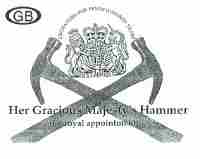
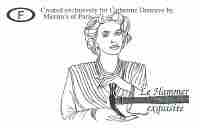
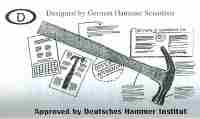
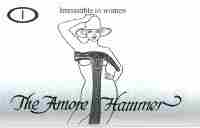
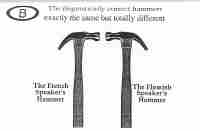
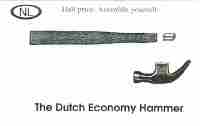
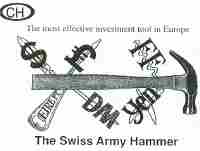
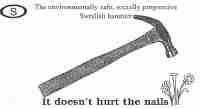






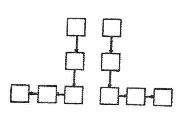



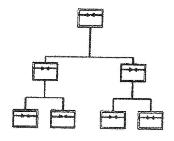



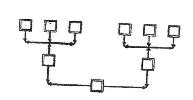

Introduction
Italians
Feel Different From Other Europeans
The
Italian Character
Save
Us From Ourselves
Italy
and the New European Union Members
Europeans
not as Good as Italians Think
Perceived
Differences Between Italians and Other Europeans
Popular
Descriptions of Italians
Perception
and Humor